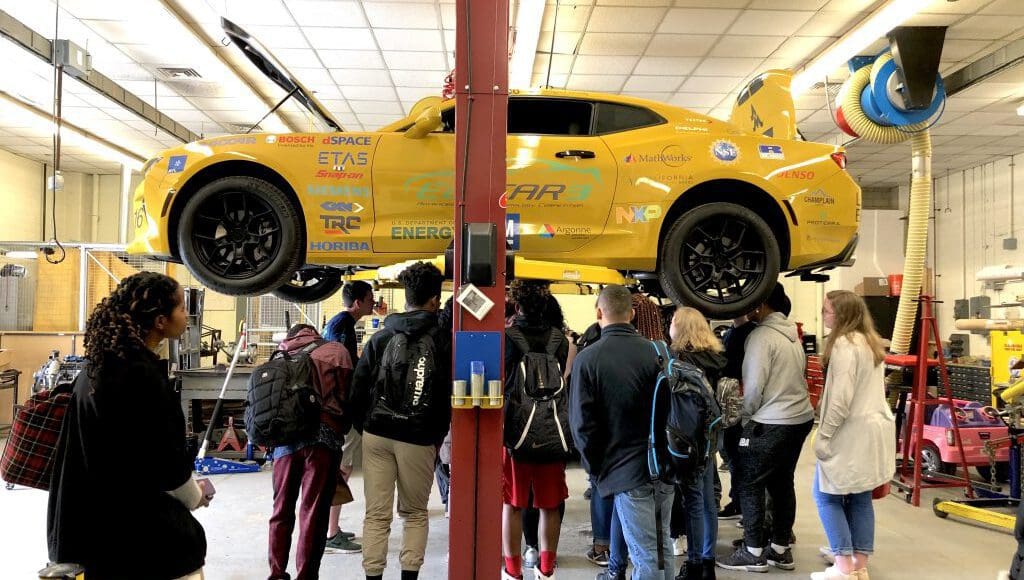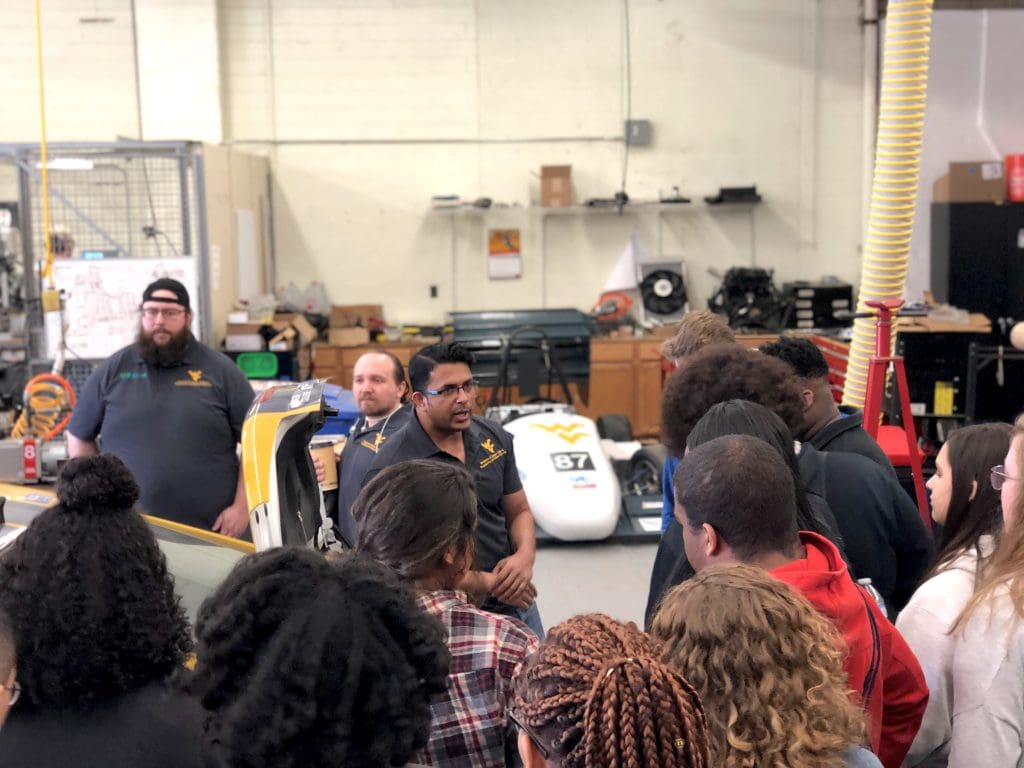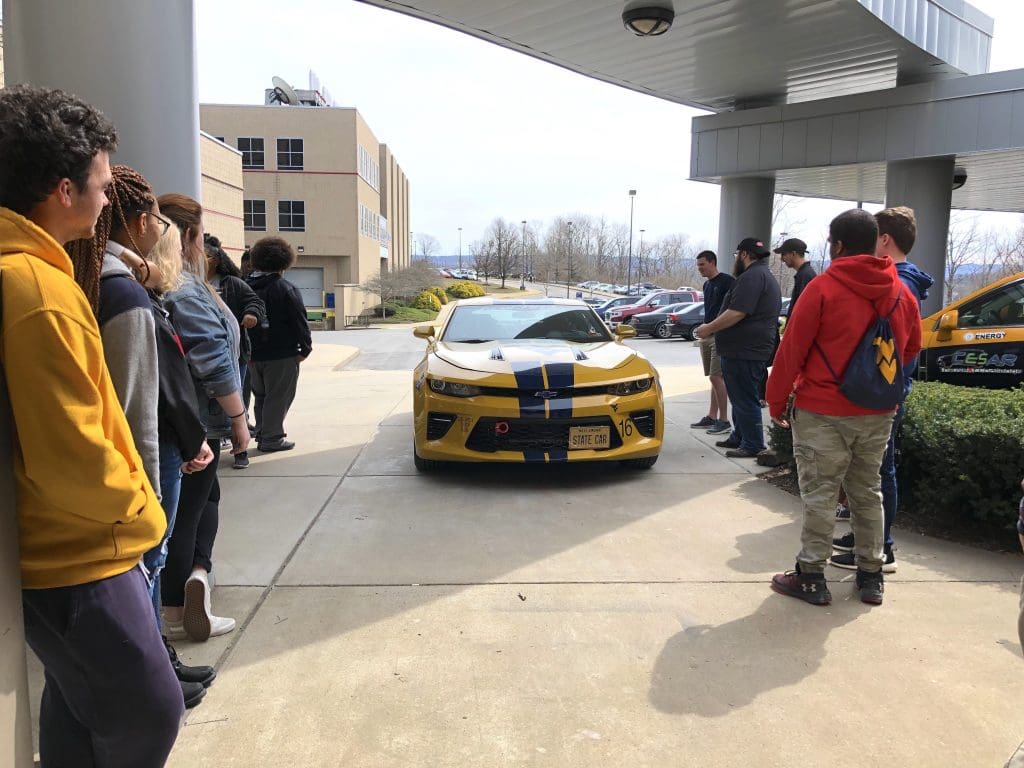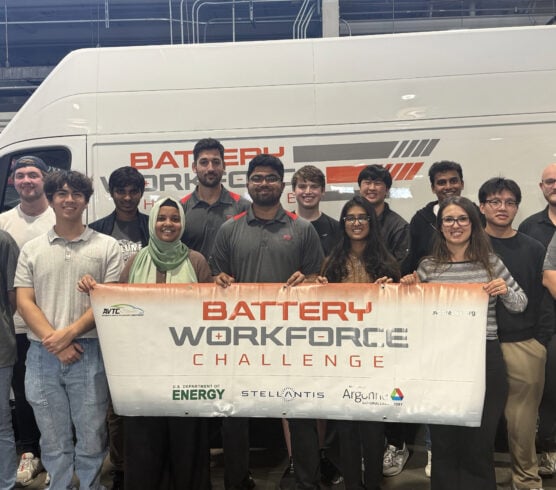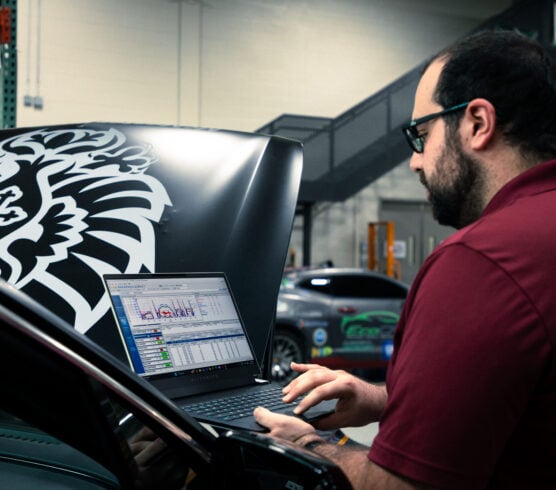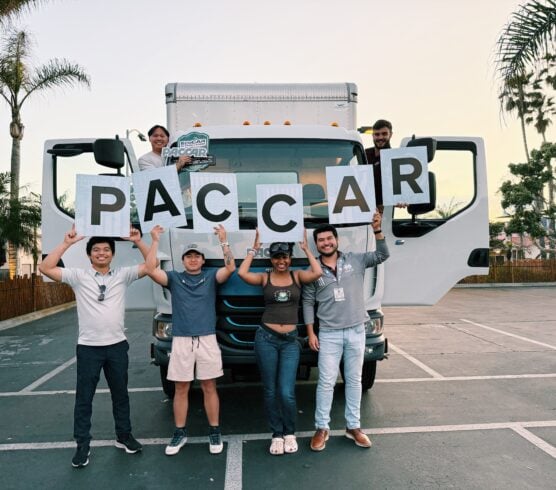Written By: Haleigh Fields, WVU Communications Manager
This year, 20 Monongalia County Health Sciences & Technology Academy (HSTA) students had the chance to visit West Virginia University’s campus, ride the Personal Rapid Transit (PRT) and see the EcoCAR team’s work. Started in 1994, HSTA’s goal is to increase the number of under-represented West Virginia students who go on to pursue degrees in the areas of health, technology, engineering and/or mathematics.
“As a team with a mixture of first-generation undergraduate and graduate students, especially within our leadership, it’s important to us that we show prospective students the advantages of pursuing a career in STEM,” said Benton Morris, WVU EcoCAR Mobility Challenge team project manager. “We want to show that anyone, regardless of education level, can benefit from this knowledge.”
To give the high schoolers a better understanding of the history of Advanced Vehicle Technology Competitions (AVTCs), WVU EcoCAR Mobility Challenge team members discussed the goals of the competitions, the status of connected and automated vehicle (CAV) technologies, the design of the team’s EcoCAR 3 Chevrolet Camaro, and the current team’s work. In addition, HSTA students heard about the EcoCAR 3 team’s failures and successes, including their climb to finish in second place in the final competition year.
After the presentation, team members raised the Camaro on the garage lift, so students could learn about the integration of the powertrain components while underneath the vehicle. While some were initially apprehensive to walk beneath the car, they eventually all saw firsthand how the Camaro had been transformed to use hybrid-electric power.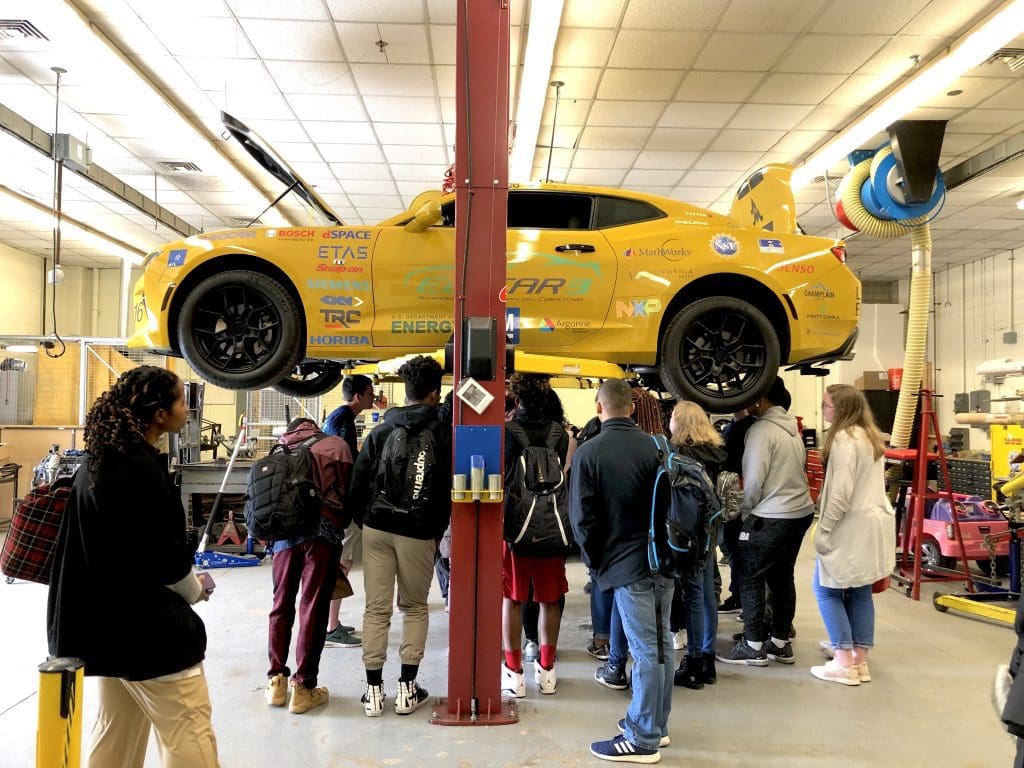
Members from the CAV and mechanical teams described the different modes in which the car could be driven, using both the engine and the battery. CAV members discussed the different levels of automation and how Level II automation will be implemented in EcoCAR Mobility Challenge with technologies such as adaptive cruise control and lane detection.
Once the Camaro was lowered, each student rode in the passenger seat through the adjacent parking lot, which some indicated was their favorite part of the day. Before departing, students toured the EcoCAR labs and saw EcoCAR students hard at work on deliverables for the EcoCAR Mobility Challenge.
The WVU EcoCAR Mobility Challenge team is grateful for the opportunity to work with organizations like HSTA and hopes to see some of these students on the team in coming years! To learn more about the WVU HSTA program, go to .
